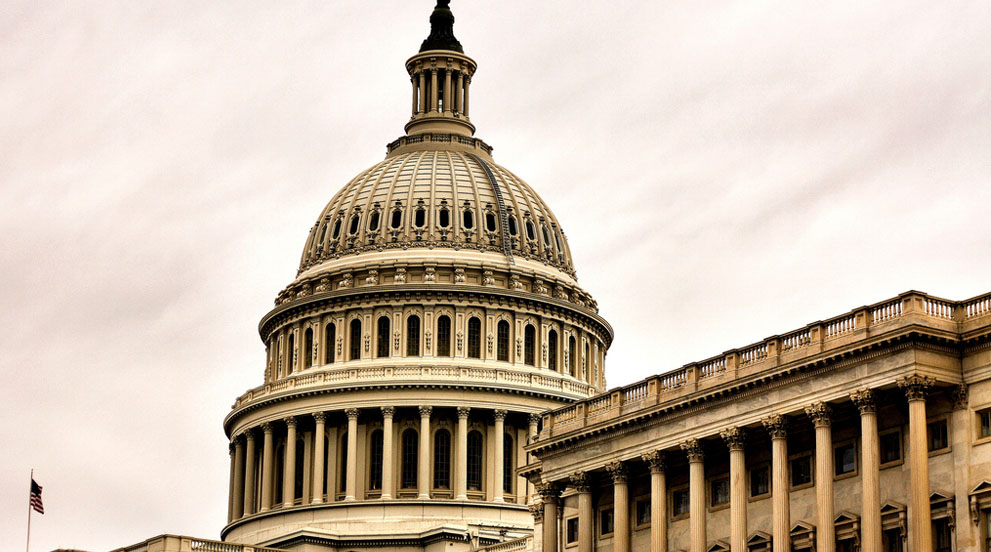
Business Associations Keep Pressure on Congress to End Shutdown
The U.S. Chamber of Commerce and other business groups are appealing to lawmakers to reach a compromise that would reopen the federal government before it derails the economic recovery.
Associations with strong Republican Party ties have had it with the toll the federal government shutdown is taking on their members and constituents.
Despite longstanding objections some have had to the Affordable Care Act and other Obama administration regulatory proposals, several big-business advocates—including the U.S. Chamber of Commerce, the Aerospace Industries Association, the National Defense Industrial Association, and the U.S. Travel Association—have called on Congress to end the shutdown as it stretches into its second week and as the October 17 deadline to raise the federal debt ceiling approaches.
We urge Congress and the administration to work together immediately to find a path forward on the [continuing resolution] and debt limit to remove any threat to the full faith and credit of the U.S. government.
“A government shutdown is economically disruptive and creates even more uncertainty for the U.S. economy,” R. Bruce Josten, the Chamber of Commerce executive vice president of government affairs, told Bloomberg Businessweek. “We are disappointed this has happened, and we urge Congress and the administration to work together immediately to find a path forward on the [continuing resolution] and debt limit to remove any threat to the full faith and credit of the U.S. government.”
Rather than lay blame at the feet of one party, be it Democratic or Republican, business associations instead are focused on ending the stalemate that is keeping thousands of federal employees from their jobs and threatens important contracting deadlines and meetings across dozens of industrial and service sectors—delays that experts say could derail the nation’s still-tenuous economic recovery if allowed to continue.
“We are urging members to work with each other and President Obama to come to a solution on all the issues that are facing us,” Dan Stohr, spokesman for the Aerospace Industries Association, which represents defense heavyweights such as Lockheed Martin Corp. and General Electric Co., said in a separate Bloomberg news service report. “You just can’t run a business this way. The uncertainty is killing us.”
So Much for Alliances
The calls from business association leaders mark a stark contrast to their traditionally conservative roots.
Bloomberg reports that U.S. Chamber of Commerce members alone donated nearly $36 million to the 2012 campaign, with the lion’s share going to Republican candidates. Employees for U.S. defense contractors reportedly gave 60 percent of their donations to Republicans in 2012, according to Bloomberg, citing stats from the Center for Responsive Politics. Employees for the tourism industry gave 58 percent of 2012 political contributions to GOP candidates, according the same survey.
All that money has helped businesses and their advocates secure an audience with Republican leaders over the years. But recent events have led some executives to question whether their concerns and those of their constituents and employees have begun to fall on deaf ears.
Before the shutdown, the Chamber of Commerce sent a letter to Congress signed by 240 industry groups. It warned of the dangers that shuttering the government would pose but did little to change minds in Congress.
When asked if he was aware of growing concerns among business groups about the shutdown and its impact on the economy, Rep. Dana Rohrabacher (R-CA) was quoted by the Associated Press as saying: “No. And it wouldn’t make any difference if I did.”
But evidence suggests the concerns of business advocates are justified.
Bloomberg Businessweek cites an October 2 Goldman Sachs report that estimates the shutdown will reduce economic growth “on an annualized basis by 0.2 percentage points a week, meaning if the government were to remain closed for five weeks, fourth-quarter estimates of U.S. economic health would fall by a full point.”
In a statement, U.S. Travel Association President and CEO Roger Dow told lawmakers: “We urge leaders in Congress to realize that the longer this goes on, the worse the long-term implications will be for major portions of our economy.”
How is your organization affected by the shutdown? Tell us in the comments.
(Phil Roeder/Flickr)






Comments